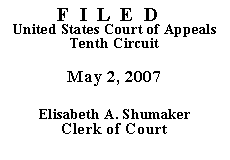

| UNITED STATES OF AMERICA,
Plaintiff-Appellee, v. JOSE GUADALUPE LORENZO-SALINAS, Defendant-Appellant. |
|
In sentencing defendant, the district court accepted the Plea Agreement's stipulated offense level of 12, as well as the criminal history category calculation set forth in the presentence report, which was a category of V. See id. Attach. 3 (Tr. of Sentencing Hr'g) at 10-11. These two factors yielded a guideline sentencing range of twenty-seven to thirty-three months. The district court sentenced defendant to a term of twenty-seven months' incarceration, followed by a two-year term of unsupervised release. As defendant acknowledged in the Plea Agreement, the maximum sentence the court could have imposed under the applicable statute was up to twenty years' imprisonment, a mandatory term of not more than three years' supervised release, a fine not to exceed $250,000, and a special penalty assessment of $100. See Plea Agreement at 2.
Notwithstanding the appeal waiver in his Plea Agreement, defendant, proceeding pro se, filed a notice of appeal challenging his sentence. The government has moved to enforce the appeal waiver under United States v. Hahn, 359 F.3d 1315 (10th Cir. 2004) (en banc) (per curiam). Under Hahn, we will enforce a criminal defendant's waiver of his right to appeal so long as (1) "the disputed appeal falls within the scope of the waiver of appellate rights," (2) "the defendant knowingly and voluntarily waived his appellate rights," and (3) "enforcing the waiver would [not] result in a miscarriage of justice." Id. at 1325. Defendant's counsel has filed a response to the motion to enforce stating his belief that there are no grounds upon which defendant's appeal can be sustained. This court provided defendant an opportunity to file a pro se response to the motion to enforce, which was due on April 5, 2007, but to date, he has not filed a response.
We have carefully reviewed the Plea Agreement and the transcripts of the plea hearing and the sentencing hearing. We conclude, applying the Hahn factors, that defendant's waiver of his right to appeal is enforceable.
Accordingly, we GRANT the government's motion to enforce the Plea Agreement and DISMISS the appeal. The mandate shall issue forthwith.
ENTERED FOR THE COURT
PER CURIAM
*. This panel has determined unanimously that oral argument would not materially assist the determination of this appeal. See Fed. R. App. P. 34(a)(2); 10th Cir. R. 34.1(G). The case is therefore ordered submitted without oral argument. This order and judgment is not binding precedent, except under the doctrines of law of the case, res judicata, and collateral estoppel. It may be cited, however, for its persuasive value consistent with Fed. R. App. P. 32.1 and 10th Cir. R. 32.1.